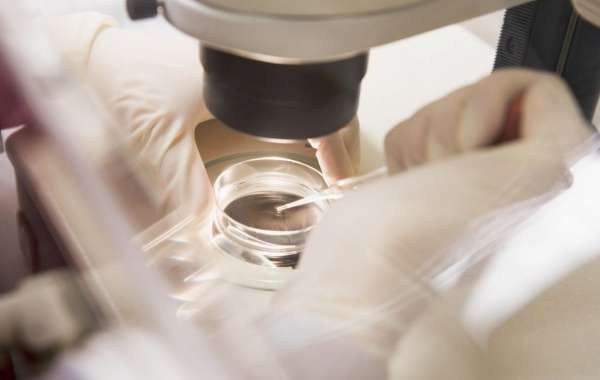Introduction: Understanding the IVF Journey
In vitro fertilization (IVF) has transformed the possibilities for couples struggling with infertility. While IVF is a widely practiced and advanced medical procedure, understanding the process can help reduce stress and improve outcomes. Each stage of IVF involves specific steps, timelines, and expectations, and being prepared allows couples to approach the journey with confidence and clarity.
In Lahore, specialized clinics like Infertility Medical & IVF Center Lahore provide comprehensive IVF services, guiding patients through every step of the treatment. This article outlines what to expect during each stage of IVF, offering insights from fertility experts to help couples feel informed and reassured.
Stage 1: Initial Consultation and Evaluation
The first stage of IVF begins with a thorough consultation and evaluation at the clinic. During this stage:
Medical History Review: Doctors assess previous pregnancies, menstrual cycles, surgeries, and overall reproductive health.
Diagnostic Testing: Hormonal profiling, ultrasound scans, semen analysis, and assessment of uterine health are performed.
Fertility Planning: Based on test results, specialists develop a personalized treatment plan, explaining the expected timelines, procedures, and potential outcomes.
The initial consultation establishes a foundation of trust between the couple and the fertility team, helping patients feel supported from the very beginning.
Stage 2: Ovarian Stimulation
Ovarian stimulation is a critical phase in IVF treatment. It involves administering hormonal medications to stimulate the ovaries to produce multiple mature eggs. During this stage:
Daily Injections: Patients receive hormones such as FSH and LH to encourage egg development.
Monitoring: Regular ultrasound scans and blood tests track follicle growth and hormone levels.
Adjustments: Dosages may be modified based on individual responses to maximize egg quality.
At Infertility Medical & IVF Center Lahore, patients receive detailed guidance on administering injections, recognizing side effects, and understanding the importance of adherence to the medication schedule.
Stage 3: Egg Retrieval
Once the eggs have matured, the next step is egg retrieval, also known as follicular aspiration:
Procedure: Conducted under local anesthesia, sedation, or general anesthesia, a needle is used to collect eggs from the ovarian follicles.
Duration: The procedure typically takes 20–40 minutes.
Recovery: Patients may experience mild cramping or spotting, but most can resume normal activities within a day.
Egg retrieval is a pivotal moment in IVF, as the collected eggs will later be fertilized to form embryos.
Stage 4: Fertilization
Fertilization occurs in the laboratory under controlled conditions:
Sperm Preparation: A semen sample is processed to select the healthiest sperm.
Fertilization Methods: Standard IVF allows sperm to fertilize the egg naturally, while ICSI (Intracytoplasmic Sperm Injection) is used in cases of male infertility.
Embryo Development: Fertilized eggs (embryos) are monitored for growth and quality over several days.
Fertilization is a delicate and highly monitored process, and expert embryologists play a crucial role in maximizing the chances of healthy embryo development.
Stage 5: Embryo Culture and Selection
During this stage, embryos are cultured in a specialized incubator, allowing embryologists to observe their development:
Monitoring: Advanced technology such as time-lapse imaging tracks embryo growth and identifies the most viable ones.
Genetic Screening: Preimplantation genetic testing (PGT) may be performed to select healthy embryos and reduce the risk of genetic disorders.
Selection for Transfer: Embryologists select the best-quality embryo(s) for transfer to the uterus.
This stage ensures that only the healthiest embryos are used, improving the chances of implantation and successful pregnancy.
Stage 6: Embryo Transfer
Embryo transfer is a relatively simple and painless procedure:
Procedure: The selected embryo is transferred into the uterus using a thin catheter, usually under ultrasound guidance.
Duration: The procedure typically takes 10–20 minutes.
Post-Transfer Care: Patients are advised to rest briefly and follow instructions regarding activity, medications, and lifestyle.
Embryo transfer is a hopeful moment, marking the start of the implantation phase. Emotional support during this stage is particularly important, as the waiting period can be stressful.
Stage 7: The Two-Week Wait
The two-week wait is the period between embryo transfer and the pregnancy test:
Monitoring Symptoms: Patients may notice mild cramping, spotting, or other early pregnancy signs.
Emotional Management: Anxiety is common, and support from partners, family, or counseling services is beneficial.
Lifestyle Considerations: Maintaining a healthy diet, avoiding stress, and following medical advice contribute to overall well-being.
During this phase, couples are encouraged to stay patient and focus on self-care while awaiting confirmation of pregnancy.
Stage 8: Pregnancy Testing and Follow-Up
After the two-week wait, a blood test (beta-hCG) is conducted to determine if implantation was successful:
Positive Result: Leads to early pregnancy monitoring, including ultrasound scans and ongoing medical support.
Negative Result: Couples may discuss next steps with their specialist, including repeat IVF cycles or alternative treatments.
Follow-up care is essential for monitoring health and addressing any complications promptly. Clinics like Infertility Medical & IVF Center Lahore provide comprehensive guidance to navigate these outcomes with clarity and support.
Emotional and Psychological Support During IVF
IVF is not only a medical journey but also an emotional one. Couples may experience a wide range of feelings throughout treatment:
Hope and Excitement: At the start of treatment and during each milestone.
Anxiety and Stress: Hormonal changes, frequent visits, and uncertainty about outcomes.
Disappointment: Failed cycles or complications can be emotionally challenging.
Supportive counseling, patient education, and open communication with the fertility team help manage emotions and maintain resilience during the IVF journey.
Success Rates and Factors Influencing Outcomes
Several factors affect IVF success rates, including:
Age of the Woman: Younger patients generally have higher success rates.
Quality of Eggs and Sperm: Healthy gametes improve embryo development.
Uterine Health: Procedures like hysteroscopy may optimize the uterine environment.
Clinic Expertise: Skilled specialists and advanced laboratory technology increase the likelihood of success.
Understanding these factors helps couples maintain realistic expectations and make informed decisions throughout the process.
Tips for a Smooth IVF Journey
Couples can enhance their IVF experience by adopting practical strategies:
Stay Informed: Understand each stage of treatment and ask questions.
Follow Medical Advice: Adhere to medication schedules and lifestyle recommendations.
Maintain Emotional Health: Utilize counseling, support groups, or mindfulness techniques.
Focus on Self-Care: Adequate rest, nutrition, and gentle exercise support overall health.
Build a Support Network: Share experiences with trusted family or friends to reduce stress.
A well-prepared and supported approach contributes to a smoother and more positive IVF journey.
Conclusion:
Understanding what to expect during each stage of IVF treatment in Lahore helps couples approach the journey with confidence. From initial consultation to embryo transfer and pregnancy monitoring, each step is carefully managed by specialists to maximize the chances of success.At Infertility Medical & IVF Center Lahore, patients receive comprehensive guidance, personalized care, and emotional support throughout the process. Knowledge, preparation, and expert assistance transform IVF from an uncertain journey into a hopeful and empowering path toward parenthood.








